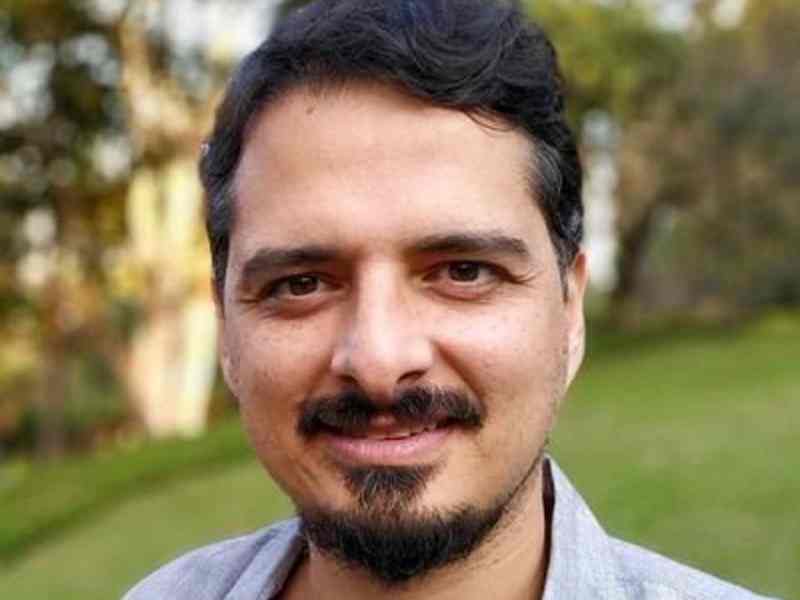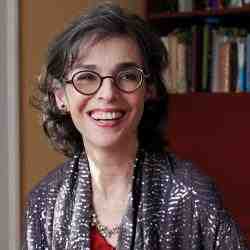Introduction
Sérgio Serapião is building a national movement to change the paradigm of old age in Brazil. Through networking and a replicable model of meetings, trainings, co-construction of new roles and forms of changemaking, and incubation of initiatives aimed at this public, Sérgio enables the acceleration of social innovation processes that have the elderly in the centre of attention as protagonists as much as beneficiaries.
L'idée nouvelle
Sérgio is pragmatic in his vision: he wants to change the current paradigm of old age and provide the common welfare for the population over 60 years. For Sérgio, this change involves work with all ages and, especially, the involvement of the elderly not only as beneficiaries but as changemakers of their stories. Therefore, he has created a national movement to bring positive responses and to push social innovations for longevity, which is not based on medical issues, like other initiatives. This movement is carried out by embassies established in various cities of the country to bring together people from different backgrounds and age groups to discuss aging and to propose innovative solutions for changemaking and well-being of the elderly in the society. These discussions are guided by a methodology developed by Sérgio that allows the construction and implementation of innovative initiatives that can be absorbed by companies and / or by the government.
In 30 years, Brazil's elderly population will surpass that of young people; however, the lack of public policies aimed at this part of the society and the dismantling of the social security system reinforces the need for civil society to organize for the change in the age pyramid. Sérgio wants to find new roles in society that only the elderly can play. He developed an innovative methodology to identify the competencies, abilities and skills people have developed during their lifes and re-articulate them to the challenges faced after the age of 60 based on experiences and immersions in companies, with intergenerationality as the guiding thread.
In order to accelerate social innovations for longevity, Sérgio created the first incubator in Brazil focused exclusively on solutions to life after 60. In parallel, he created an annual national festival on longevity. This type of event is not new, but the way the public and the agenda are built by Sérgio make it innovative. Its methodology allows the formation of an ecosystem of different stakeholders engaged in building an environment favorable to the elderly, that is a point of acceleration for various initiatives.
Le problème
Brazil is an aging society and is yet only partially prepared for the demographic and social challenge. Societies in Europe or North America experienced a slow process of growing numbers of senior citizens and of a growing life expectancy, and could prepare for the social transformation that goes along with it. However, Brazil experiences this social transformation in an accelerated process. In the 20th century the Brazilian population grew significantly from 70 million people in 1950 to 207 million people today. The generations born in the decades after the Second World War now come of age. Due to the improvement of conditions of life and the general health situation in the last decades, the share of the elderly people at the Brazilian population is growing. 10.6 percent of the population or 22 million people are older than 60 years and life expectancy rose to 75 years on average. The elderly are healthier than ever before and expect to stay active for more years. At the same time, the birth rate fell to 1.8 children per woman, what means that Brazil faces a significant aging of the population from 2025 on.
The country only started to prepare for this social challenge, and public policies are insufficient concerning the topic. The Charter of the Old Generation, adopted in 2003, states the rights of the elderly people and aims to improve the quality of life of this generation. With the bill Brazil adopted the guidelines of the World Health Organization (WHO) for aging societies, whose key elements are health, participation in society, security measures to protect people over 60 from violence and discrimination, as well as assuring social, physical and financial security. The bill has been implemented insufficiently, and today the public policy on the old generation is underdeveloped and inadequate. Specific policies are missing, especially different policies responding to the different regional conditions in Brazil. The social systems are neglected by national politics and the role of the state in society is constantly reduced. In the health care system only 2000 gerontologists in the whole country focus on health issues of the elderly. In general, studies and information about aging in Brazil and the old generation are insufficient.
Social inequality persists and senior citizens do not dispose of the same means to keep their autonomy and take care of themselves. Since senior citizens will soon represent a quarter of the population, and given the fast reduction of informal caregiving due to a reduced family size and the increasing participation of women in the labor market, Brazil needs new solutions for the elderly people. Furthermore, prejudices about elderly people dominate the popular opinion and make it difficult for them to find an appropriate place in the labor market or as a volunteer. Still, the society imagines itself to be young, and characteristics such as beauty, vitality and modernity are attributed only to the young generation. Many Brazilians lack information about aging and an attitude of prevention that would guide them to age in a healthy way.
In general, the issue is not new and the debate about the aging of the society is on since the turn of the millennium. In the private sector and among NGOs the amount of initiatives addressing the elderly people grew. Most of them pursue a work in limited segments and with little interconnections, and lack a comprehensive vision of systemic change. They offer activities or education for senior citizens but often don’t follow the concept of the elderly person as a valuable agent of social change.
La stratégie
Collaboration is the key word for Sérgio Serapião's strategy in building a civil society movement capable of changing the paradigm of old age, LAB60 +. Sérgio realized that the change of mentality had to go through the engagement and the exchanges between different generations and between people of diverse expertises. For him, eye-to-eye contact is essential for creating links and an environment for building solutions that positively impact the elderly and the elderly. Not that it is contrary to technology. But, according to Sérgio, she can not replace face-to-face contacts.
The LAB60 + movement integrates people and organizations from a cause, from a common nuisance to do something to transform the world they live in and prepare it for a rapidly aging society. The LAB60 + movement is networked, transdisciplinary and values diversity. Sérgio innovated by not excluding anyone and not leaving the movement a space of specialists in old age.
The LAB60 + has four strategies of engagement and innovation, all based on three pillars in which all speech, interaction, relationships and actions must be supported: positive (not claimed), propositive (relationship based on actions rather than discussion) and collaborative (we are all the problem and the solution, we have to co-responsible).
The gateway to the movement are the Lab60 + Café, which are monthly conversations facilitated by "ambassadors", who are the local focal points of LAB60 +, responsible for network animation. These ambassadors are volunteers interested in taking the cause of innovation to longevity. These volunteers go through a face-to-face training in the methodology of the cafes - which includes the presentation of the participants, speaking space and co-creation. Currently, there are embassies spread across six cities in Brazil and Sérgio is articulating the expansion in Brazil and abroad. Engaging organizations and people in embassies allows monthly meetings in six cities across the country. This represents meetings of 15 to 70 people in each city, with the presentation of 6 new initiatives every month in each location. With this, LAB60 + has become a great dynamic, collaborative and distributed laboratory building a new reality for the 60+ population, without the need to have a large corporation or government funding behind, but rather many people and organizations with different engagements for the same purpose.
Another strategy for action is the LAB60 + Reinvention of Labor in which Sérgio works with seniors in companies to develop new professions that only people over 60 can exercise. With this, he is creating a new job market for this population that today does not want or can not stop working. It is also a way of financing other initiatives, as it works with companies and also with universities interested in replicating the model.
With his work in the area of longevity, Sérgio realized the need to accelerate social impact initiatives. He created the Lab60 + Impact, which is the first and only social-business accelerator to positively impact longevity.
To give visibility to the theme, once a year Sérgio organizes the Lab60 + Longevity Festival, which aims to celebrate the advances that the network obtains and integrate all. Both the festival's agenda and the funding for the festival are collective. On average, more than a thousand people circulate annually through the festival.
In each axis of transformation, Sérgio seeks to develop a significant initiative that contributes to change the current paradigm of aging. It measures the number of people and organizations engaged and identifies how they are transforming when they connect to LAB60 +. More than a quantitative effect, it seeks to have an inspiring effect (elderly people who reinvented themselves, for example) and what he calls the "acupuncture effect" with large organizations and systems, engaging System B, B-LAB, SESI, SESC , governments, relevant NGOs and large companies in this process. With companies, it has already taken a major step in developing new longevity impact indicators that were absent from the Impact Survey for B companies. It also launched the B60 + Challenge to provoke companies and organizations in general to become aware of the issue and measure their respective impacts.
La personne
Sergio always was very entrepreneurial. He developed various skills and accumulated broad knowledge during his different entrepreneurial activities. When he was 14 years old he set up his first own business and advised companies on their sustainability performance. He attached great importance to integrate stakeholders and generate joint profits. It was a great and successful experience for Sergio and motivated him to carry on as a social entrepreneur. At this time his father was an important companion to Sergio, who inspired and advised him. When Sergio was 16 years old, his father died and the adolescent went on his own way. Sergio studied Administration at the renowned college of the Foundation Getúlio Vargas. After, he worked at the consultant departments of great organizations and gained extensive experiences. There, he matured and realized that he wanted to set up different projects with a social impact that he thought to be more important to generate social, cultural and economic transformation.
He cooperated with bigger companies and started to commit himself to innovative initiatives in education and culture. His main project in this sector was the development of the platform Cinema Education (Cine Educação) that started in 2004. It aims to introduce audiovisual material into formal education at schools and colleges, and to encourage pupils and students to debate on different issues. At another project that started 2005, Sergio followed his interest in questions of sustainability. Again, he worked as a consultant for companies and coordinated corporate sustainability strategies, stakeholders engagement, and reporting on sustainability matters. His clients were MAPFRE Seguros, Kimberly Clark, Tarpon Investments, Omega Energia Renovável, Arezzo&Co, Banco do Brasil, Grupo Boticário, Rede Energia, Santos Brazil and other renowned companies. Since 2006 Sergio designed and coordinated local development projects in several Brazilian States for companies committed with community development aligned with their own success. From 2010 on he built up the Academy of Sustainability (Academia de Sustentabilidade), a platform to engage corporate stakeholders into a sustainability agenda. Sergio aggregates a network of specialists and professors that, together, develop and provide courses, workshops and team dynamics to align top executives, clients, business partners, and community leaders into one sustainable development agenda.
During these projects and experiences Sergio constantly improved his methods and consultancy abilities. He understood the complexity of new alignment processes and payed attention to social issues. His aim was to develop solutions together with different stakeholders that have significant impacts. In a next step he started to concentrate more on the issues itself and less on stakeholders and clients as he realized that a sudden turn away of a stakeholder or client could bring a whole process of change to an end. With his new project LAB60+ Sergio focusses on longevity and provides a platform where different stakeholders interconnect and joint solutions to the issue are created and developed.

 Tile image
Tile image


